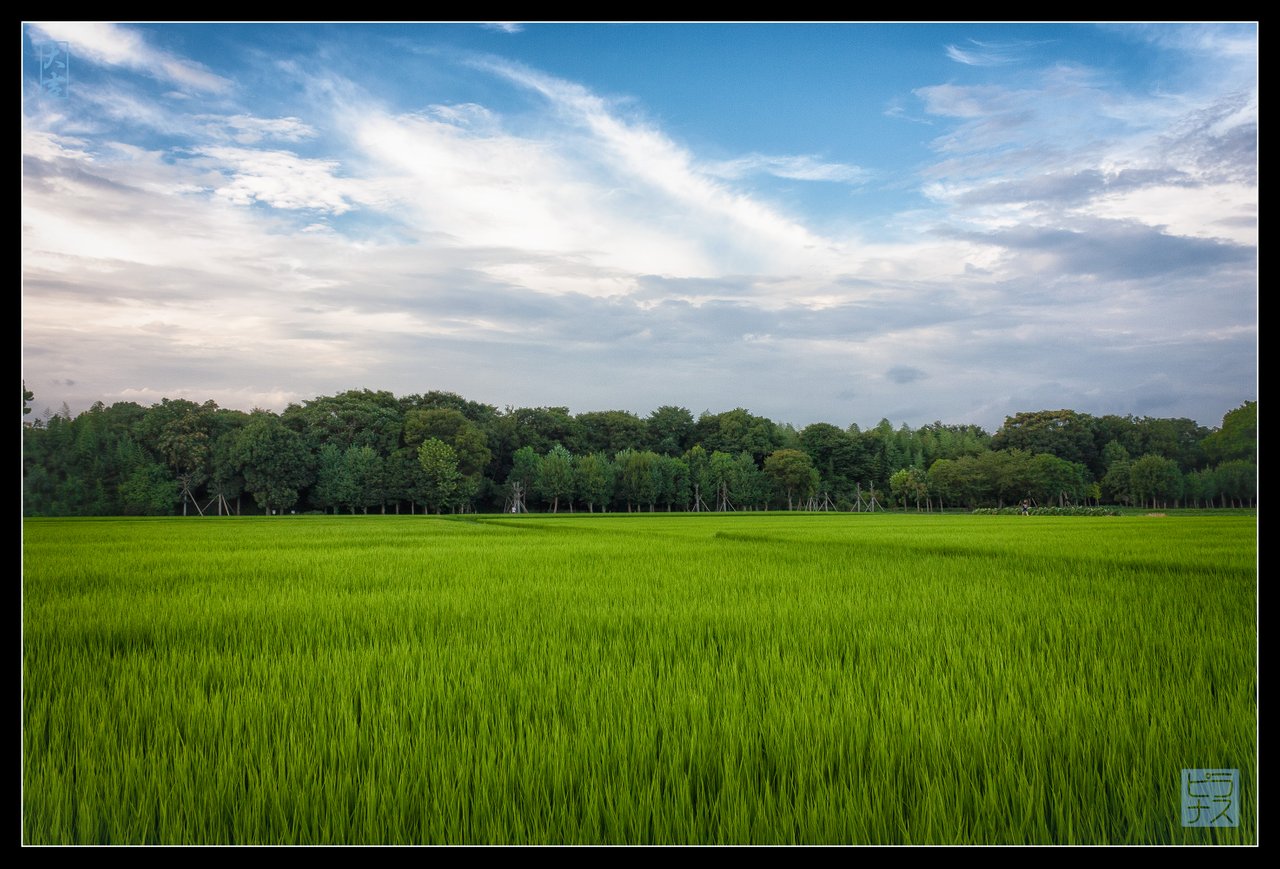Over the Fields ~ Haiku of Japan
chichi arite akebono mitashi aotabara
we'd watch the daybreak
over the green fields
—Issa


Around this time of the year the rice is growing longer and longer and now resembles tall grass. It's quite beautiful watching the lush green plants swaying in the wind, even moreso when the sun is rising behind the fields.
I've seen conflicting sources on when this was written. Some places say he wrote it after his father's death, but others say he wrote it when his father was suffering on his deathbed. This would have been around 1801 when Issa was 39. Regardless of when exactly it was written, it seems like his father suffered for sometime and finally died around 6am according to Issa's diary. We can easily imagine the pain Issa must have been in. This haiku shows us the longing in his heart to have his father back.
Some (like Blyth) have used this haiku as an example of how Issa had a tendency to fall into self-pity. He could be very emotional and sentimental in his writing, this is true, but I think that is the very thing that has made him very popular all over the world and one of the greatest haiku poets Japan has produced. We can recognize that Bashō's haiku are technically brilliant, and that Buson and Shiki paint very lovely pictures with their words, but it is Issa that we can feel: both his child-like glee and his depression make him the most human of the four most famous haiku poets.
Aota (green fields, or green rice fields) is a kigo (season word) for late summer.
❦

 |
David LaSpina is an American photographer and translator lost in Japan, trying to capture the beauty of this country one photo at a time and searching for the perfect haiku. |
If this blog post has entertained or helped you, please follow/upvote/reblog. If you want to further support my writing, donations are welcome.
That is, me! If you like this translation, feel free to use it. Just credit me. Also link here if you can. ↩
I agree with you about Issa being relatable and that this quality is what can make a poet's work the most beautiful. I came across this post and was immediately drawn in by the haiku, not because I thought of Issa's father, actually, but because I thought of my own. Beautiful piece.
Glad you enjoyed it!
!PIZZA
Thank you!
This poem expresses the eye and heart of one who takes cognizance of his environment, noticing the changes that comes upon every feature, including rice, that becomes tall.and takes over with time.
Nice written.
Glad you could enjoy!
!PIZZA
PIZZA Holders sent $PIZZA tips in this post's comments:
dbooster tipped trifecta-tt (x1)
@dbooster(2/15) tipped @mrenglish (x1)
Please vote for pizza.witness!